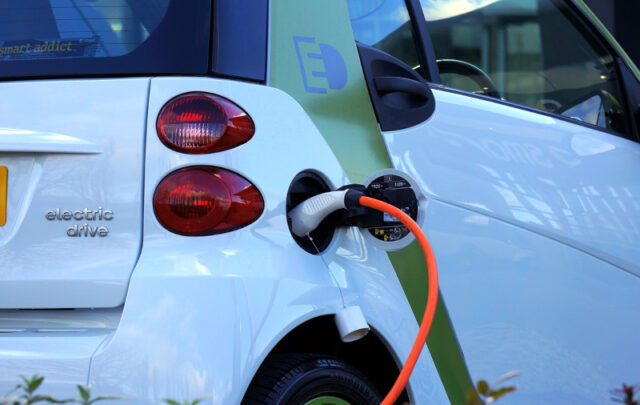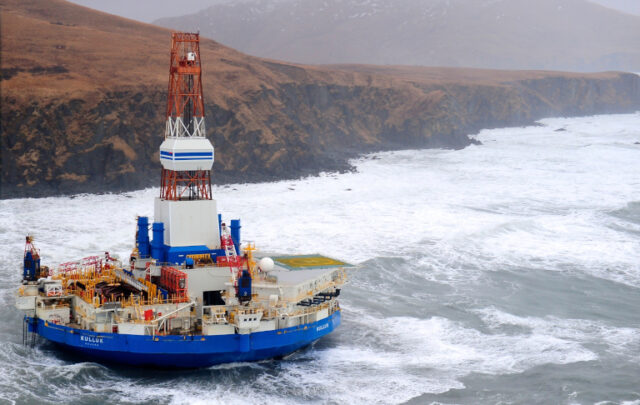Even in the best possible case, the consequences of the oil disaster in the Gulf of Mexico will be severe and ongoing (see the first paragraph of “Deepwater Horizon: The Worst-Case Scenario”.
What would make the difference between the worst and best cases? That difference would flow not just from a single factor, but from a confluence of many through three main tributaries: luck, competence, and courage.
If we are to see the best—which is just the least-bad—outcome from the Deepwater Horizon catastrophe, we will need some luck. We will need for there to be no major hurricanes in the Gulf of Mexico this season to disrupt oil recovery and relief-well drilling efforts. We will need the well casing deep below the seabed to maintain enough integrity so that relief wells can succeed in “killing” the original well. And we will need for the relief well drillers to intersect the initial Deepwater Horizon borehole on the first try.
Which is a nice segue to our second tributary—competence. Those relief-well drillers had better be well rested and highly skilled. Similarly, workers capturing the oil leaking out of the blowout preventer, and cleaning up the oil already seaborne, will need training and smarts. Let’s hope that the engineers and technicians who are doing this important work are not overruled by profit-obsessed executives, as happened on the ill-fated Deepwater Horizon drilling rig in the days and hours leading up to its fateful explosion.
Courage is possibly the pathway to a best-case outcome that is most accessible to short-term human intervention, unless you happen to believe that we can dramatically influence our luck through some sort of collective cathartic ritual (might be worth a try, but how to organize it?). I’m willing to take for granted the competence of the good people working on the technical problems related to well-kill and cleanup. But courage hardly deserves to be taken for granted. True, some would say there’s not much more we can do to increase our presumed will-power than we can to improve our luck: after all, our human choices are mostly constrained, if not tightly determined, by genetics and circumstances. No one knows just how much wiggle room we actually have in terms of free will and courage; but, if there is indeed some substantial amount, it might make all the difference in the world at this historic juncture.
It would take courage, will, and foresight, for example, to begin building a new economy in Louisiana and the other Gulf states. Take away both fishing and the oil industry and there’s not much left (other than some gambling in Biloxi and the tantalizing varieties of sin and jazz in the French Quarter). That’s why even the devastated fishers in south Louisiana still staunchly support more drilling. But oil production in the Gulf of Mexico is near its peak for a number of reasons, not least of which are declining discoveries and depletion of existing oilfields. The oil industry will be leaving the building fairly soon no matter what political decisions are made, and no matter how soon the current oil spill is capped and cleaned up. So: what can the Gulf states do for an economic encore? Any realistic answer will consist of a plan based on the harvesting of renewable resources at sustainable rates—but an economy that operates on that basis will have little use for highways, suburbs, and shopping malls. It will take a lot of courage for anyone—President, Governor, Senator, or Mayor—to utter this uncomfortable truth.

Image credit: The Economist
It will also take courage to do something similar for the U.S. as a whole—to set specific priorities for reducing oil dependency, and to begin an historic shift from car-centered transport and industrialized food systems. And the only way an American politician at the national level will ever be able to successfully exercise such courage is first to overcome the political influence of the fossil-fuel, automotive, road-building, and agribusiness cartels. That power shift will itself require both courageous leadership and sustained political grass-roots organizing. A reversal of certain Supreme Court decisions giving corporations all the rights of human persons would be more than helpful along the way.
If only such courage were on display, all sorts of problems could be addressed. Reducing our reliance on oil would help rein in climate change, air and water pollution, resource depletion, geopolitical intrigues, foreign wars, probably even highway accidents. Almost everyone agrees we ought to do this—so let’s just screw up our gumption and get it done!
Ah, if only it were so easy. Chalking the sticking point up to lack of courage is a handy way to put leaders on the spot while ignoring the character and constraints of the system that selected them and got them to where they are in the first place. As Jon Stewart pointed out in a devastatingly funny and sad segment last week, each of the last eight U.S. presidents has called for energy reform—including an end to oil imports and the development of renewable energy sources.
And for the past forty years, U.S. oil imports have continued to grow and renewables have continued to provide only a relatively insignificant sliver of total American and world energy. Is the problem really a lack of courage, or could it have something to do with an entrenched political-economic system with an autoimmune disorder that makes it resist needed reform as though it were some invading disease? Oh dear, we’ve just run out of options! If we don’t believe much in luck, take competence for granted, and discount the potential of courage to make much of a difference in the current situation, there’s not much left to hope for. What will be will be.
Which brings us to the most likely scenario. As we’ve just seen, the best case is highly unlikely. Most Americans agree on the need for a major shift of energy policy, but if either party in Congress or the President actually undertook to make such a shift happen, both the corporatocracy and a sizeable section of the electorate would (at least metaphorically) have these leaders’ heads on pikes by sundown. For confirmation, we need look no further than a New York Times/CBS poll just released; the first paragraph of the related Times story reads:
“Overwhelmingly, Americans think the nation needs a fundamental overhaul of its energy policies, and most expect alternative forms to replace oil as a major source within 25 years. Yet a majority are unwilling to pay higher gasoline prices to help develop new fuel sources.”
Translation: “Solve our energy problems for us—just don’t ask us to bear any inconvenience while you do it. We’re happy with our comforts and don’t want to be disturbed.”
The trouble is, those comforts are about to be taken away no matter what anyone does, and we will all be very disturbed indeed when that happens. If we don’t wean ourselves off of oil, nature will accomplish that task for us through simple depletion of the world’s remaining high quality, cheaply accessed deposits of non-renewable petroleum.
Texas geologist Jeffrey Brown has rather facetiously offered his own “plan” to reduce U.S. reliance on foreign oil: it is based on the fact that oil exporters are using an ever-greater proportion of what they produce to satisfy growing domestic demand for fuel. That means that even if world crude oil production can remain on its current plateau of about 75 million barrels per day for another decade, the amount available to importing countries will inexorably dwindle. And this in turn will lead to bitter competition among oil importers for the remaining world export capacity. We can already tell how that contest will likely go:
“U.S. net oil imports fell at 4.3% per year from 2005 to 2008 (from 12.5 million barrels per day to 11.0 mbpd), while [China and India’s combined] net oil imports rose at 9% per year from 2005 to 2008 (from 4.6 mbpd to 6.0 mbpd). If we extrapolate these two trends, at these rates Chindia’s net oil imports would exceed U.S. net oil imports some time around 2013. It’s also helpful to express Chindia’s net oil imports as a percentage of (2005) top five net oil exports. Chindia went from importing the equivalent of 19% of the combined net oil exports from Saudi Arabia, Russia, Norway, Iran and the UAE in 2005 to importing 27% of their combined net oil exports in 2008. If we extrapolate this trend, Chindia would be net importing the equivalent of 100% of the combined net oil exports from Saudi Arabia, Russia, Norway, Iran and the UAE some time around 2019.”
Which will leave the U.S. out in the cold (with only a little help from Canada), relying almost entirely on its own domestic oil production—which can’t grow much even if we drill in every last offshore wildlife refuge. Finally, mission accomplished! We’ll be almost entirely off of foreign oil in only a decade. And getting there won’t require political courage.
If the best case is highly unlikely, the worst case is probably overblown. In my last blog post, I discussed concerns that the Deepwater Horizon well casing and the cement supporting that casing within the borehole could be disintegrating deep underground; if that is the situation, it might be difficult or impossible to “kill” the well with the relief wells now being drilled. At this point, no one outside of BP’s management and technical staff knows if such concerns are justified. On the bright side: A couple of the old hands at www.TheOilDrum.com have pointed out that, if problems with the casing were that serious, we’d be seeing significant oil leakage from around the well borehole, outside the riser—but that’s just not apparent in real-time shots from the ROV cameras.
If the casing holds out, relief wells should work. But will they do their job by August? This hurricane season is projected to be a very active one, so a most-likely scenario would include at least one significant work stoppage due to weather, pushing the final well-kill back at least a month, perhaps even to December. Weather is also likely to disrupt oil-capturing efforts in a most-likely scenario, and could dump oil-soaked Gulf waters on coastal communities and habitat.
In short: the most-likely scenario is very, very bad for wildlife, BP, Britain, Obama, the economy of the southeastern states, indeed for the overall U.S. economy. A year from now, we will be further down the road Jeffrey Brown has mapped for us, with China and the U.S. competing a little more openly for access to oil and other resources. The most-likely scenario certainly includes lots of political dithering, grandstanding, and scapegoating over the next many weeks—all to vanishingly little practical effect. In a year’s time, nearly everyone will be convinced that U.S. energy policy is in even worse shape than they believe it to be today. And in twelve months very little will have changed in terms of national energy strategies or priorities.
Which is why individuals, families, neighborhoods and communities need to be thinking about how they’re going to formulate their own energy and economic plans, starting now.
Like this post?
Keep the information flowing: Donate to Post Carbon Institute
Stay connected: Receive our monthly e-newsletter






